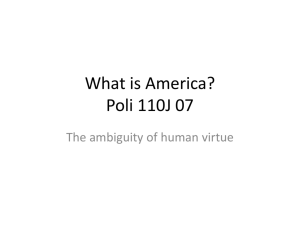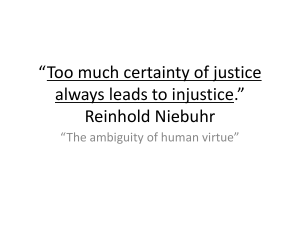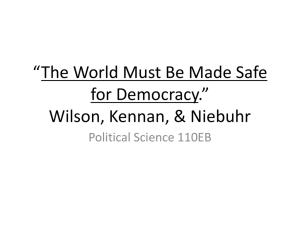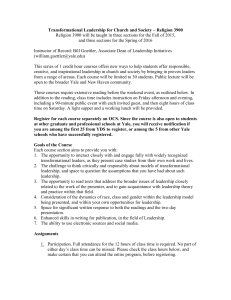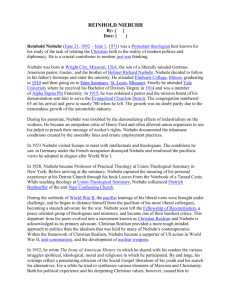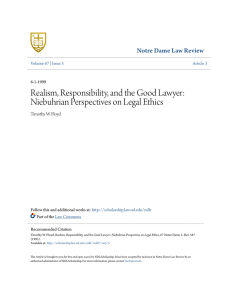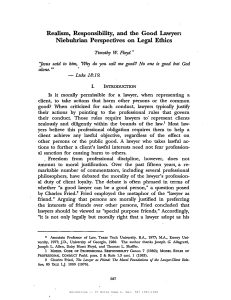M-Niebuhr Op Ed(0)
advertisement
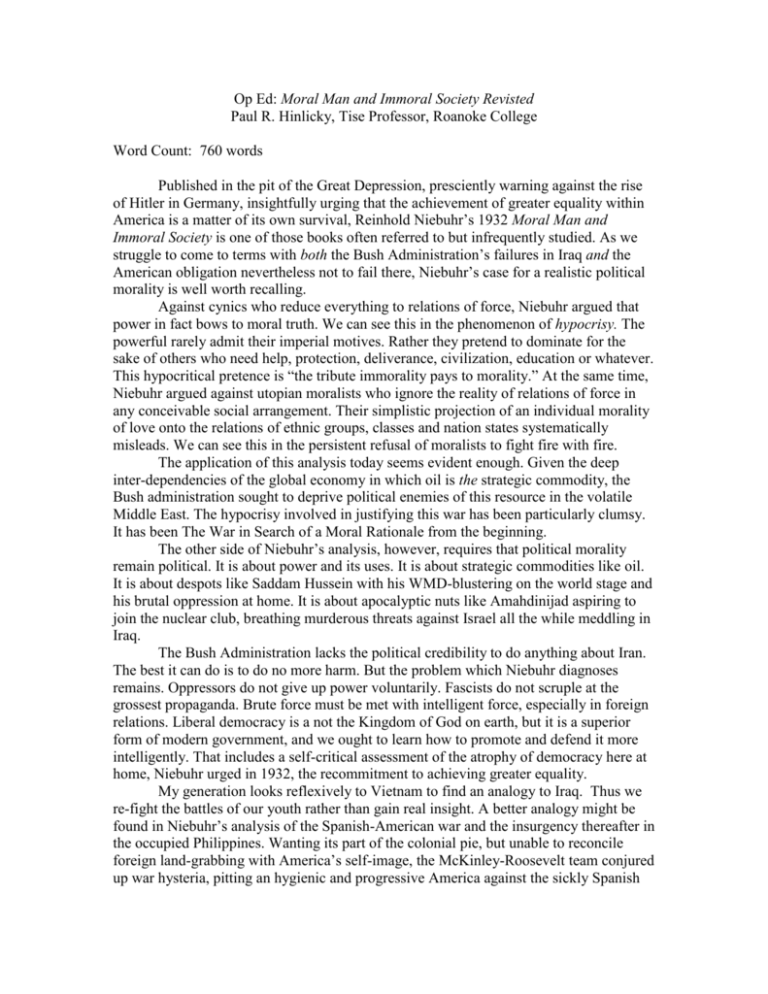
Op Ed: Moral Man and Immoral Society Revisted Paul R. Hinlicky, Tise Professor, Roanoke College Word Count: 760 words Published in the pit of the Great Depression, presciently warning against the rise of Hitler in Germany, insightfully urging that the achievement of greater equality within America is a matter of its own survival, Reinhold Niebuhr’s 1932 Moral Man and Immoral Society is one of those books often referred to but infrequently studied. As we struggle to come to terms with both the Bush Administration’s failures in Iraq and the American obligation nevertheless not to fail there, Niebuhr’s case for a realistic political morality is well worth recalling. Against cynics who reduce everything to relations of force, Niebuhr argued that power in fact bows to moral truth. We can see this in the phenomenon of hypocrisy. The powerful rarely admit their imperial motives. Rather they pretend to dominate for the sake of others who need help, protection, deliverance, civilization, education or whatever. This hypocritical pretence is “the tribute immorality pays to morality.” At the same time, Niebuhr argued against utopian moralists who ignore the reality of relations of force in any conceivable social arrangement. Their simplistic projection of an individual morality of love onto the relations of ethnic groups, classes and nation states systematically misleads. We can see this in the persistent refusal of moralists to fight fire with fire. The application of this analysis today seems evident enough. Given the deep inter-dependencies of the global economy in which oil is the strategic commodity, the Bush administration sought to deprive political enemies of this resource in the volatile Middle East. The hypocrisy involved in justifying this war has been particularly clumsy. It has been The War in Search of a Moral Rationale from the beginning. The other side of Niebuhr’s analysis, however, requires that political morality remain political. It is about power and its uses. It is about strategic commodities like oil. It is about despots like Saddam Hussein with his WMD-blustering on the world stage and his brutal oppression at home. It is about apocalyptic nuts like Amahdinijad aspiring to join the nuclear club, breathing murderous threats against Israel all the while meddling in Iraq. The Bush Administration lacks the political credibility to do anything about Iran. The best it can do is to do no more harm. But the problem which Niebuhr diagnoses remains. Oppressors do not give up power voluntarily. Fascists do not scruple at the grossest propaganda. Brute force must be met with intelligent force, especially in foreign relations. Liberal democracy is a not the Kingdom of God on earth, but it is a superior form of modern government, and we ought to learn how to promote and defend it more intelligently. That includes a self-critical assessment of the atrophy of democracy here at home, Niebuhr urged in 1932, the recommitment to achieving greater equality. My generation looks reflexively to Vietnam to find an analogy to Iraq. Thus we re-fight the battles of our youth rather than gain real insight. A better analogy might be found in Niebuhr’s analysis of the Spanish-American war and the insurgency thereafter in the occupied Philippines. Wanting its part of the colonial pie, but unable to reconcile foreign land-grabbing with America’s self-image, the McKinley-Roosevelt team conjured up war hysteria, pitting an hygienic and progressive America against the sickly Spanish colonial overlords. Having occupied the Philippines to save them, Americans were surprised to be greeted with an insurgency. Having no stomach for such a fight, Congress almost succeeded in cutting off funding. At the last minute, a serious “hearts and minds” turn in military strategy turned things around. These parallels are intriguing --but go read Niebuhr on it for yourself. The task before us, Niebuhr urged, is “one of reducing force by increasing the factors which make for a moral and rational adjustment of life to life.” A Niebuhrian analysis suggests the following points of intelligent convergence for Republicans and Democrats serious about that task in Iraq and beyond: Overcome domestic inequality. Exporting democracy abroad while social equality withers at home exposes an hypocrisy so massive that fascists like Amahdinijad can and will drive a bomb-laden truck right through it. Go green – fast! Make oil less and less a strategic commodity. Make the war to save the environment the home front’s urgent contribution. Boots on the ground. There is no technologically cheap trade off for soldiers in harm’s way. Force must be met with force not fantasies of science-fiction magic weapons. Diplomatic initiative. The relative shift in influence to Condolizza Rice since Rumsfeld’s departure is worth supporting now. The alternative is our increasingly dysfunctional zero-sum politics pitting cynics against hypocrites and utopians against brutes.
